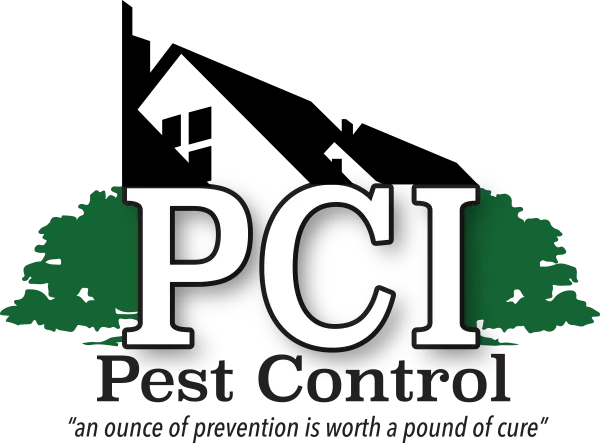Why DIY Rodent Control Often Fails in Washington Homes

Rodents are more than just a nuisance—they pose serious risks to your home and health. In Washington, where the climate and urban-rural mix provide ideal conditions for rodents, infestations are all too common. While DIY rodent control might seem appealing, it often falls short of delivering lasting results. Here's why DIY methods frequently fail and how professional pest control offers a more effective solution.
The Hidden Challenges of Rodent Control
Rodents are incredibly adaptable and resourceful creatures. Whether it's house mice sneaking through gaps in your foundation or Norway rats nesting in your attic, rodents can infiltrate almost any part of your home. Addressing an infestation requires more than setting a few traps; it demands an in-depth understanding of rodent behavior and biology, something most homeowners lack.
Rodents Reproduce Rapidly
One of the most significant challenges of rodent control is their fast reproduction rate. A single pair of mice can produce up to 60 offspring in a year. If you’re only dealing with the rodents you can see, you’re missing the larger, unseen population that will quickly replace those removed by DIY efforts.
Rodents Are Masterful Hiders
Rodents rarely make themselves visible during the day. They nest in hard-to-reach areas like behind walls, under floorboards, or in attics. Without professional tools and training, locating and eliminating these nests is nearly impossible.
DIY Doesn’t Address Entry Points
Even if you manage to catch a few rodents, you’re still left with the issue of how they got inside. Rodents can squeeze through holes the size of a dime, climb walls, and gnaw through materials like wood, plastic, and even soft metal. Closing these entry points is critical for long-term control but often overlooked in DIY approaches.
The Limitations of DIY Rodent Control
Over-the-Counter Products Lack Power
Most DIY rodent control products available at hardware stores are not as effective as professional-grade tools. Traps may be poorly designed, bait might not be attractive to rodents, and ultrasonic repellents have limited scientific backing.
Misuse of Products
Improper placement of traps or baits can render them ineffective or even counterproductive. For example, placing bait in areas accessible to pets or children can create health hazards, while poorly positioned traps may scare rodents into harder-to-reach areas.
False Sense of Security
Catching one or two rodents with DIY traps can give you the impression that the problem is solved. However, rodents are social creatures, and where there’s one, there are likely many more hiding out of sight.
Limited Understanding of Rodent Behavior
Each rodent species behaves differently. For example, Norway rats prefer ground-level nesting sites, while roof rats are climbers that nest in attics and trees. Without knowing the habits of the specific species in your home, you risk targeting the wrong areas.
Risk of Secondary Problems
DIY efforts often fail to consider the aftermath of rodent control. For instance, if a rodent dies in an inaccessible area, it can create foul odors and attract other pests like flies. Proper disposal is critical to prevent secondary infestations or health hazards.
The Health Risks of Rodent Infestations
Rodents are more than a structural threat—they can endanger your health. They carry diseases such as hantavirus, leptospirosis, and salmonella, and their droppings and urine can contaminate food and air. For Washington residents, who may store items in garages or sheds due to the region's damp climate, the risk of exposure to rodent-borne diseases is even greater.
Additionally, rodents can trigger allergies and asthma in sensitive individuals. Their fur, dander, and droppings can exacerbate respiratory issues, making it crucial to eliminate them promptly and thoroughly.
Why Professional Rodent Control Is the Solution
Expertise and Training
Professional pest control technicians are trained to understand rodent behavior, identify species, and implement the most effective strategies for removal and prevention. They know where to look for nests, how to identify entry points, and which methods will work best for each situation.
Advanced Tools and Techniques
Experts have access to professional-grade tools and methods that are far more effective than what’s available to the average homeowner. This includes advanced traps, rodenticides, and exclusion techniques like sealing gaps and installing barriers.
Long-Term Solutions
Professional services don’t just eliminate existing rodents—they prevent future infestations. This includes sealing entry points, removing attractants, and offering guidance on maintaining a rodent-free environment.
Safe and Eco-Friendly Practices
Rodent control professionals use methods that are safe for your family, pets, and the environment. They ensure that traps and baits are placed securely and that chemicals, if used, are applied responsibly.
Peace of Mind
Dealing with a rodent infestation can be stressful and time-consuming. Hiring a professional allows you to focus on other priorities, knowing that experts are handling the problem effectively.
Washington’s Unique Rodent Challenges
The Pacific Northwest’s climate and urbanization make rodent control particularly challenging. Damp winters drive rodents indoors, while lush vegetation and abundant food sources provide ideal conditions for nesting. Urban areas like Seattle and Spokane have high population densities, which contribute to rodent activity.
Professional pest control companies in Washington are familiar with these regional challenges and can tailor their strategies to address them effectively.
Invest in Professional Rodent Control for a Safer Home
While DIY rodent control may seem like a convenient option, it rarely delivers the comprehensive and lasting results you need. Professional pest control services offer expertise, advanced tools, and preventive measures that protect your home and family from the dangers of rodents.
Don’t let rodents overrun your Washington home. Contact PCI Pest Control today for a free consultation and take the first step toward a rodent-free life!
